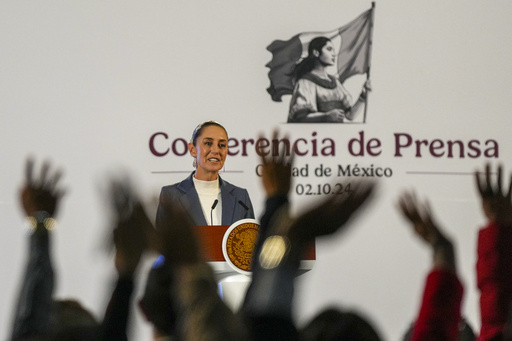
MEXICO CITY — In a significant decision, Mexico’s Senate has approved the dissolution of seven independent regulatory and oversight bodies, a development that has raised alarms among critics who believe this will enhance the ruling party’s control and reduce external oversight.
President Claudia Sheinbaum has framed this move as a cost-cutting initiative, asserting that the government will manage functions such as freedom of information requests, monopoly regulation, and energy market oversight more effectively without these independent agencies.
Nevertheless, worries persist among foreign investors and critics that this change could lead to favoritism and diminish transparency in government dealings.
The implications for public access to information are concerning. The Senate’s decision, which is expected to receive confirmation from two-thirds of state legislatures dominated by Sheinbaum’s Morena party, effectively disbands the independent body originally tasked with compelling government departments to disclose information upon receiving requests from citizens. Going forward, each department will likely have the discretion to determine what information it chooses to release.
Adrián Alcalá, head of the National Institute for Information Access, expressed concerns that this fragmentation could lead to a lack of accountability. “When you fragment something, it tends to disappear,” he pointed out.
Public response to the value of these agencies can be seen in the data: within the first three quarters of 2024, citizens filed over 275,000 requests for government documents. Since its inception two decades ago, the National Institute for Information Access—previously known by another designation—has received upwards of four million freedom-of-information requests. These inquiries cover a wide range of topics, including government budgets, contractual agreements, labor standards, and human rights concerns. According to Sarahí Salvatierra from the public policy research group Fundar, “transparency and informing the public are the cornerstones of democracy.”
International stakeholders have expressed concerns as well. The Senate’s vote to disband the federal anti-monopoly commission has raised fears of possible trade disputes. According to a recent report from the American Chamber of Commerce, these changes could lead to complications with trade partners, given that the US-Mexico-Canada agreement requires independent anti-monopoly watchdogs and is set for review in 2026.
Furthermore, the ruling party has previously exempted Mexico’s state-owned oil and energy enterprises from anti-monopoly regulations. The Mexican Employers Federation has criticized this as paving the way for corruption and a monolithic concentration of power that encourages monopolistic practices.
The elimination of the regulatory commission overseeing energy and oil sectors has also sent shockwaves through the foreign investment community, as there are now doubts about protections for foreign entities investing in energy projects in Mexico. The American Chamber has raised concerns that these regulatory changes, along with earlier reforms mandating that judges stand for election, might increase uncertainty and impact the viability of energy initiatives in North America.
Additional changes include the dismantling of two independent agencies that monitored the nation’s progress on vital issues such as poverty alleviation and the effectiveness of the public school system.
In defense of these cuts, Sheinbaum has claimed that the independent agencies, known for their autonomy in operations and budgeting, had become mired in corruption and inefficiency. She asserted that after the restructuring, “there will be more transparency, but there won’t be corruption.”
Sheinbaum has also publicly stated her commitment to upholding transparency rules and the public’s right to information, asserting that citizens would still have the means to oversee government activities and expenditures.
A point of contention for the government has been the anti-monopoly commission’s unwillingness to make allowances for the debts and inefficiencies of state-owned enterprises, which are heavily linked to the ruling party. Sheinbaum criticized the commission for its particular focus on hindering state-owned companies.
As for the path ahead, the government faces the challenge of establishing new offices to take over the functions of the abolished agencies and delineating the rules that will govern them. Until these changes are implemented, citizens will need to place their trust in the government’s handling of information access.
